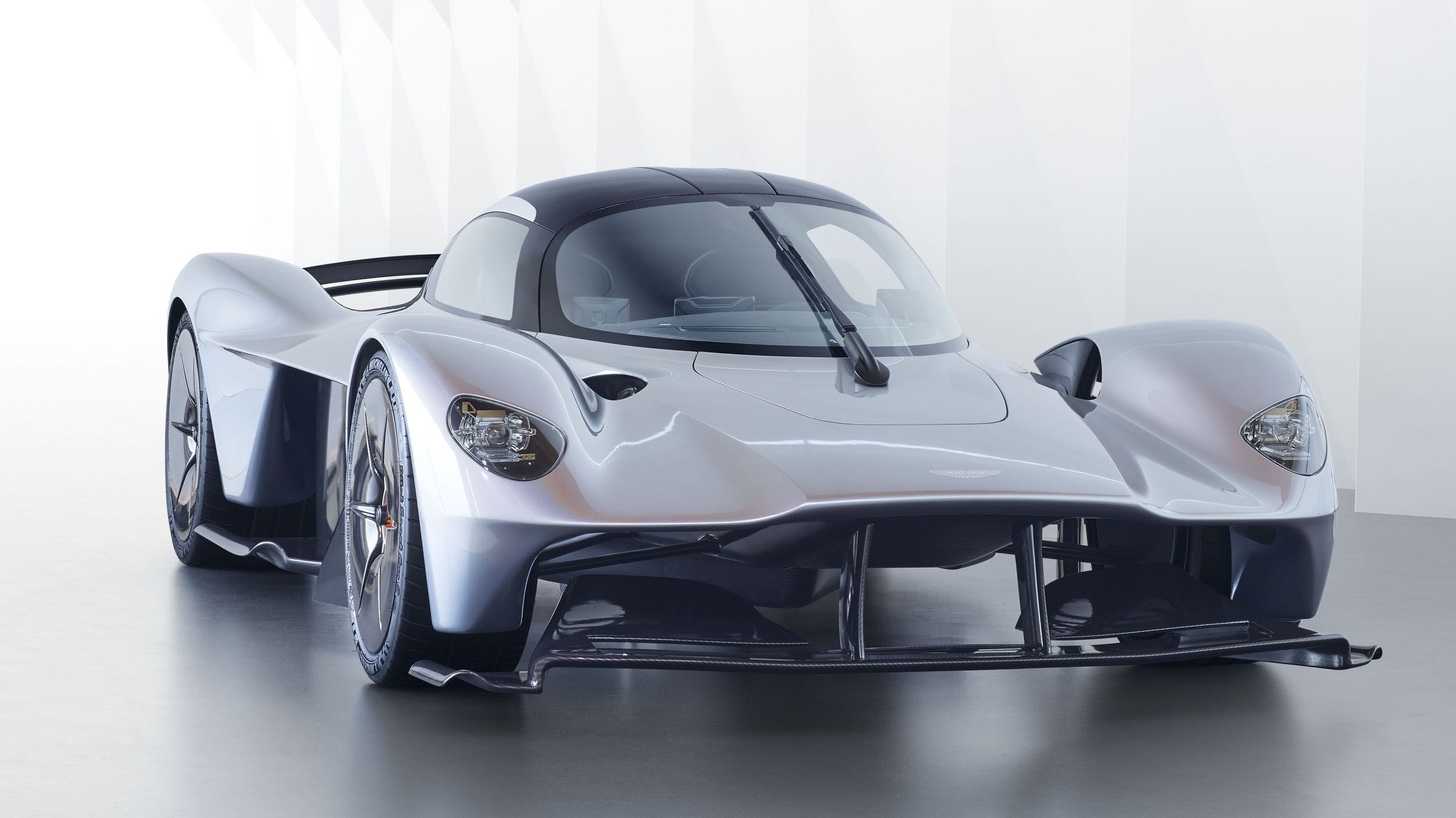Winter may have arrived in the land of Westeros, but here in the real world, the wait for the Aston Martin Valkyrie continues. The jointly-developed hypercar is shaping up to be one of the most eagerly anticipated cars of the year, and for its part, Aston Martin has done next to nothing in dousing the hype surrounding its crown jewel creation. In fact, all Aston seems to be doing is generating even more hype for the hypercar with the latest revelation coming by way of the automaker’s vice president and chief special operations officer, David King. Speaking with Motor1, King indicated that the track-spec version of the Valkyrie will be able to post lap times approaching those achieved by Formula One race cars.
Now, this isn’t the first time that a statement like this has hit the wire, but it is important in this case because of the pedigree of the people working on the actual car, particularly Red Bull Racing, one of the most successful Formula One teams of the past decade. Everything we’ve come to know about the Valkyrie leads up to its performance prowess, and with Red Bull involved in the thick of its development, there’s no reason to believe that Aston Martin is just trying to draw up some hype for its hypercar. It would be very interesting to see how the Valkyrie can do around a track like the Nurburgring where the fastest Formula One cars are believed to be capable of posting lap times of six minutes or less, almost a minute faster than the Lamborghini Huracan Performante that owns the lap record for production cars around the massive circuit.
Continue after the jump to read the full story.
Easy to imagine the Aston Martin Valkyrie living up to this new expectation
When we start talking about what the Aston Martin Valkyrie is capable of, it’s easy to get caught up in a lot of hyperbole. After all, the car itself is described as a “hyper.” It’s true in a lot of ways too, especially when we start talking about it in terms of numbers. It’s been reported that the Valkyrie is capable of producing 1,130 horsepower, a staggering amount of power that would exceed even the output of today’s V-6 hybrid-powered F1 cars, which produce around 800 horsepower themselves. Sure, F1 cars are lighter with their weight falling somewhere in the vicinity of just under 700 kilos (1,500 pounds) compared to the Valkyrie’s weight of about 1,050 kilos (2,300 pounds or so). Do a little mental gymnastics and the power-to-weight ratio of the Valkyrie and F1 cars approach similar numbers. That’s a testament to the incredible engineering that Aston Martin and Red Bull Racing put into the development of the hypercar.
Speaking of Red Bull Racing, don’t sleep on the team’s involvement in this project either. It's safe to say that the Valkyrie would never be built without the involvement of Red Bull Racing, particularly Adrian Newey, who himself is regarded as the design and engineering wizard of Formula One.
For his part, David King probably knows what the Valkyrie is fully capable of already. He didn’t divulge any more details than he probably needed to, and that’s perfectly understandable. Keeping layers of mystery about the Valkyrie is essential in retaining its mystique before its long-awaited debut.
I have no doubt in my mind that the Valkyrie will be thought of in the end as a game-changing hypercar. It’s come too far not to be thought of as such. But, I’m holding reservations on its ability to post F1 lap times even if the numbers and the car's pedigree suggest that it can. That’s not to say that I don’t believe it. I’m actually leaning on it. It’s just about understanding what a car like that could mean for the future of the industry and, in that regard, I prefer to keep the suspense and excitement where they are until the time when the hypercar actually proves that it can. It’ll happen sooner or later is what I believe. As for when exactly? That’s where the suspense is.
|
Engine |
6.5-liter V-12 engine and an electric motor |
|
Combined output |
1,130 HP |
|
Power-to-weight ratio |
1:1 |
|
Curb weight |
2,270 Lbs |
|
Transmission |
race-spec |
|
0 to 60 mph |
2.5 seconds |
References
Read our full review on the 2018 Aston Martin Valkyrie.

